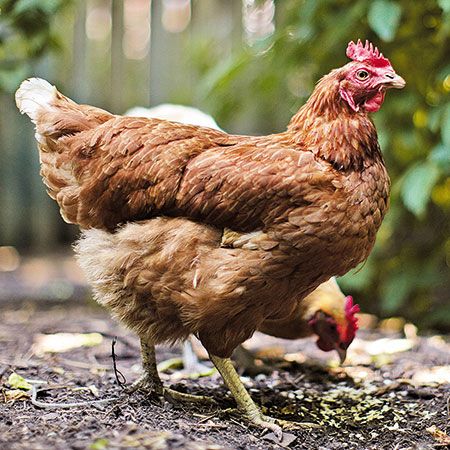Virulent Newcastle disease found in backyard chickens in California
USDA urges bird owners to follow biosecurity measures to protect flocks, pets.

Getty Images
In mid-May, the USDA Animal and Plant Health Inspection Service (APHIS) confirmed virulent Newcastle disease in a small flock of backyard exhibition chickens in Los Angeles County, according to an agency release. Since that time, the disease has also been found in flocks in San Bernardino County. These are the first cases of virulent Newcastle disease, formerly called exotic Newcastle disease, in the United States since 2003, the release states.
Virulent Newcastle disease is a contagious and fatal viral disease that affects the respiratory, nervous and digestive systems of birds and poultry, the release states. It is so virulent that many birds and poultry die without showing clinical signs, and a death rate of almost 100 percent can occur in unvaccinated flocks. It can even infect and kill vaccinated poultry.
Besides sudden death, clinical signs of the disease include sneezing; gasping for air; nasal discharge; coughing; greenish, watery diarrhea; decreased activity; tremors; drooping wings; twisting of the head and neck; circling; complete stiffness; and swelling around the eyes and neck, the release states. Images of some of these signs are available here.
APHIS notes that no human cases of the disease have ever occured from eating poultry products and that properly cooked poultry products are safe to eat. In very rare cases, people working directly with sick birds can become infected, though symptoms are usually mild and limited to conjunctivitis or influenza-like symptoms. The use of personal protective equipment can easily prevent infection in humans, the release says.
The agency is working with the California Department of Food and Agriculture to respond to the cases. Federal and state partners are conducting additional testing and surveillance in the area, according to the release. For bird owners, it's essential that they follow good biosecurity practices to helpaprotect their birds from infectious diseases, including washing hands and scrubbing boots before and after entering the poultry area; cleaning and disinfecting tires and equipment before moving them off of the property; and isolating birds that are returning from shows for 30 days before returning them to the flock.
Bird owners should also report sick birds or unusual bird deaths to state and federal officials through their state veterinarian or through the USDA's toll-free number at (866)536-7593. Find additional information about biosecurity for backyard flocks here.
Get a fact sheet from the USDA-APHIS here.